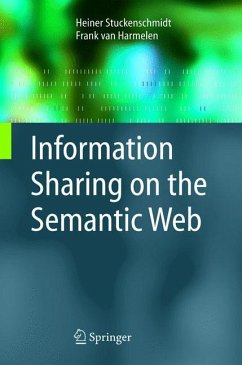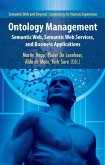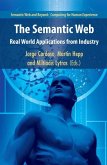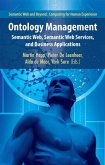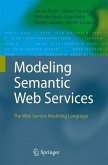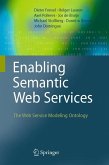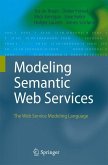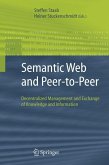The large-scale and almost ubiquitous availability of information has become as much of a curse as it is a blessing. The more information is available, the harder it is to locate any particular piece of it. And even when it has been successfully found, it is even harder still to usefully combine it with other information we may already possess. This problem occurs at many different levels, ranging from the overcrowded disks of our own PCs to the mass of unstructured information on the World Wide Web.
It is commonly understood that this problem of information sharing can only be solved by giving computers better access to the semantics of the information. While it has been recognized that ontologies play a crucial role in solving the open problems, most approaches rely on the existence of well-established data structures. To overcome these shortcomings, Stuckenschmidt and van Harmelen describe ontology-based approaches for resolving semantic heterogeneity in weakly structured environments, in particular the World Wide Web. Addressing problems like missing conceptual models, unclear system boundaries, and heterogeneous representations, they design a framework for ontology-based information sharing in weakly structured environments like the Semantic Web.
For researchers and students in areas related to the Semantic Web, the authors provide not only a comprehensive overview of the State of the art, but also present in detail recent research in areas like ontology design for information integration, metadata generation and management, and representation and management of distributed ontologies. For professionals in areas such as e-commerce (e.g., the exchange of product knowledge) and knowledge management (e.g., in large and distributed organizations), the book provides decision support on the use of novel technologies, information about potential problems, and guidelines for the successful application of existing technologies.
It is commonly understood that this problem of information sharing can only be solved by giving computers better access to the semantics of the information. While it has been recognized that ontologies play a crucial role in solving the open problems, most approaches rely on the existence of well-established data structures. To overcome these shortcomings, Stuckenschmidt and van Harmelen describe ontology-based approaches for resolving semantic heterogeneity in weakly structured environments, in particular the World Wide Web. Addressing problems like missing conceptual models, unclear system boundaries, and heterogeneous representations, they design a framework for ontology-based information sharing in weakly structured environments like the Semantic Web.
For researchers and students in areas related to the Semantic Web, the authors provide not only a comprehensive overview of the State of the art, but also present in detail recent research in areas like ontology design for information integration, metadata generation and management, and representation and management of distributed ontologies. For professionals in areas such as e-commerce (e.g., the exchange of product knowledge) and knowledge management (e.g., in large and distributed organizations), the book provides decision support on the use of novel technologies, information about potential problems, and guidelines for the successful application of existing technologies.
From the reviews:
"The authors ... tackle the difficult task of helping us use and understand the semantic web. ... The book is considered to provide not only a comprehensive overview of the 'State of the Art', but also research recently published developments in relevant areas ... . The text aims to be directed at researchers and students as well as for professionals in many areas such as e-commerce and knowledge management." (Kybernetes, Vol. 34 (7-8), 2005)
"The authors ... tackle the difficult task of helping us use and understand the semantic web. ... The book is considered to provide not only a comprehensive overview of the 'State of the Art', but also research recently published developments in relevant areas ... . The text aims to be directed at researchers and students as well as for professionals in many areas such as e-commerce and knowledge management." (Kybernetes, Vol. 34 (7-8), 2005)

